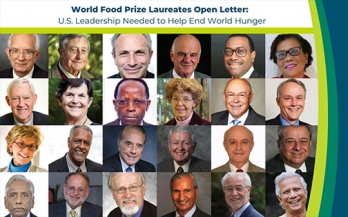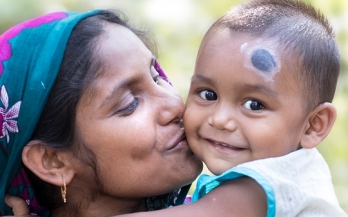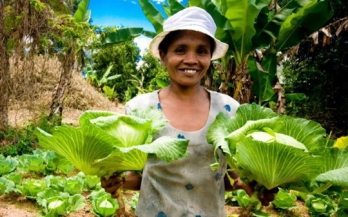Today, a global youth-led food movement was launched, promising to ignite a campaign action to combat hunger, improve health and heal the planet. The #Act4Food and #Act4Change campaign takes the form of a simple pledge and list of actions.
Our food systems profoundly impact our ability to achieve universal goals of human and planetary wellbeing, with food directly or indirectly linked to several of the United Nations (UN) Sustainable Development Goals. With the UN Food Systems Summit scheduled to convene a wide group of stakeholders from all walks of life in September 2021, food systems are rising up the agenda.
One in three people worldwide suffers from malnutrition today, making it a massive global concern impacting individuals, businesses, and economies alike – in both developing and developed countries. The health impacts of COVID-19 on workforces are bringing heightened concerns to businesses worldwide.
The United Nations and the Government of Italy announced today that the Pre-Summit gathering for the 2021 UN Food Systems Summit will be in Rome, Italy from July 19 to July 21, 2021. Under the leadership of UN Secretary-General António Guterres and Prime Minister of Italy Mario Draghi, the Pre-Summit event will bring together the efforts and contributions of a global engagement process to shape ambition to transform food systems.
GAIN in partnership with UNICEF is releasing a journal supplement in Nutrition Reviews, titled "Assessing nutrient gaps and affordability of complementary foods." Additionally, 18 accompanying country briefs will be published, half of which will focus on nutrient gaps and the other half on affordability.
The Global Health 5050 initiative is both daunting and impressive. Daunting because each year, the bar is raised for organisations trying to advance gender equity, whether it is about definitions and language or about turning words into action; and impressive because each year, more organisations want to take part, to benchmark themselves and to gain insights about how to do better in their programmes and in their operations.
24 World Food Prize Laureates from across the globe, dedicated to driving change in food systems, are calling on the leadership of the United States Administration to help end world hunger. The World Food Prize Laureates submitted an open letter to the President of the United States of America, Joseph R. Biden Jr., calling on the new Biden-Harris administration to help achieve the global goals on food.
The Governments of Canada and Bangladesh, in partnership with the Government of Japan, today hosted a virtual launch of the Nutrition for Growth Year of Action, setting in motion a year-long effort to address a global hunger and nutrition crisis that has been exacerbated by the COVID-19 pandemic.
The United Nations Children’s Fund (UNICEF) and the Global Alliance for Improved Nutrition (GAIN) launched today "Food Systems for Children and Adolescents", a special issue of the international journal Global Food Security. This special collection of 11 articles calls for an urgent transformation of food systems that work for and with children.
In a time of many seemingly insurmountable challenges, there is something that we can fix. One thing, which if changed could simultaneously accelerate the end of hunger, ensure everyone has access to a healthy diet, dramatically reduce greenhouse gas emissions, reverse biodiversity loss, and make societies and economies more equitable and resistant to devastating pandemics such as COVID-19.










